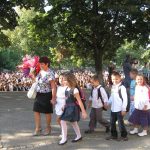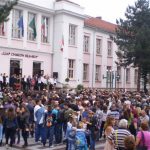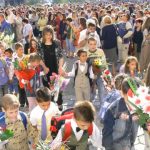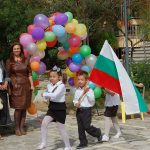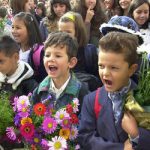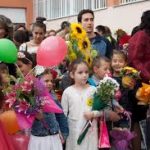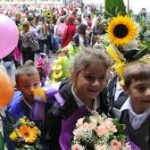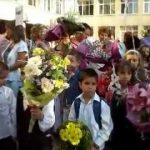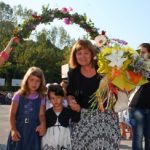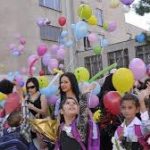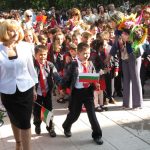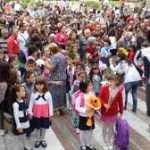Bulgaria becomes 21st member to adopt euro
BRUSSELS (AFP) — EU ministers gave the final green light on Tuesday for Bulgaria to adopt the euro on Jan. 1, 2026, making it the single currency area’s 21st member.
Bulgaria’s switch from the lev to the euro comes nearly 19 years after the country of 6.4 million people joined the European Union.
“We did it!” Bulgarian Prime Minister Rossen Jeliazkov said.
“We thank all institutions, partners and everyone whose efforts made this landmark moment possible. The government remains committed to a smooth and effective transition to the euro in the interest of all citizens,” Jeliazkov said on X.
In adopting the legal texts necessary for the move, EU finance ministers officially set the euro at 1.95583 Bulgarian lev.
EU chief Ursula von der Leyen and European Central Bank head Christine Lagarde congratulated Bulgaria after the ministers’ approval.
“We are delighted to welcome you,” Lagarde said.
“The euro will strengthen Bulgaria’s economy and bring big benefits for Bulgarian people and businesses,” von der Leyen said on X.
“Joining the euro area is much more than just about replacing lev with euro. It is about building a brighter and more prosperous future for Bulgaria and its citizens at the heart of Europe,” EU economy chief Valdis Dombrovskis said.
The European Commission last month said the EU’s poorest country had fulfilled the strict conditions to adopt the euro, while the ECB also gave a positive opinion.
Mixed feelings
Bulgaria’s journey to joining the eurozone has had a stormy political backdrop with seven elections in three years — the last in October 2024.
But recent polls show Bulgarian society remains divided on the euro, with experts attributing the skepticism largely to fears of rising prices and declining purchasing power.
President Rumen Radev shocked many when he proposed holding a referendum on the matter but that was given short shrift by the Bulgarian Parliament.
Since June, protesters have gathered in Sofia to call for “keeping the Bulgarian lev.” A symbolic protest camp with several tents has been set up near the presidency and the Bulgarian National Bank in the capital.
Proponents in Bulgaria, however, insist the move will help improve the country’s economy, and reinforce its ties to the West and protect against Russia’s influence.
“The political benefits are becoming increasingly significant, as the protests against the euro seem to bear the mark of the Kremlin,” 43-year-old musician Veselin Dimitrov told AFP in Sofia.
Euro club gets bigger
The green light comes as the euro has been gaining in value against the U.S. dollar as President Donald Trump’s protectionist trade policies shake trust in the U.S. currency.
Only 12 countries were part of the single currency area — including France, Germany, Italy, Spain, and Greece — when the first euro bills and coins were rolled out on Jan. 1, 2002.
It gradually widened with Slovenia joining in 2007, Cyprus and Malta in 2008, Slovakia in 2009, Estonia in 2011, Latvia in 2014 then Lithuania in 2015.
Croatia was the last country to join in 2023, bringing the total to 20.
Bulgaria wanted to adopt the euro sooner but Brussels judged its inflation was too high to meet the necessary criteria.
EU states that want to join the single currency area must demonstrate that their economy has converged with other eurozone countries and that they are focused on sound public spending.
The conditions include holding inflation to no more than 1.5 percentage points higher than the rate of the three best-performing EU countries.
Thousands protest in Bulgaria against the Euro
Church of God Holds Two Parallel National Assemblies in Bulgaria
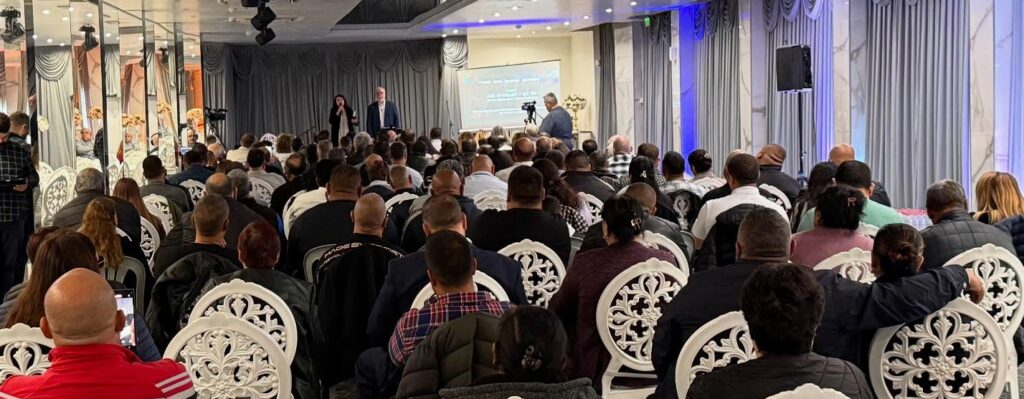
Above Dr. David Kemp speaking on National Assembly in Sliven, Bulgaria (March 29, 2025)
Below Dr. Tom Rosson speaking on National Assembly in Stara Zagora, Bulgaria (March 29, 2025)
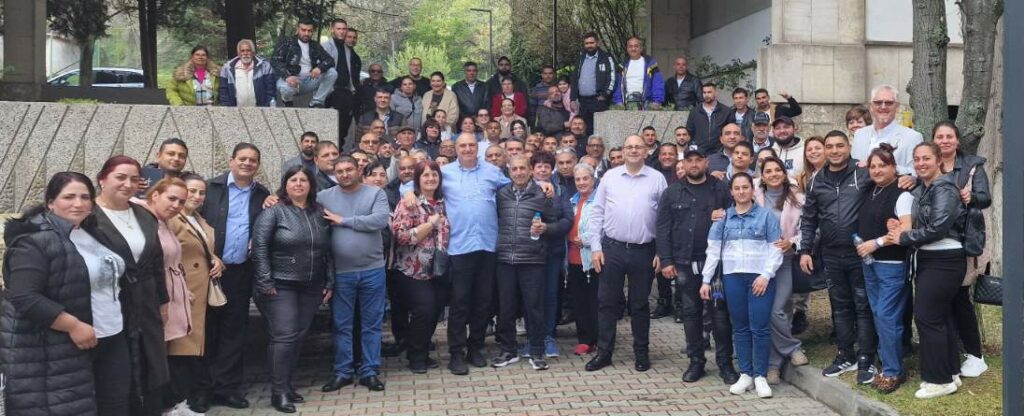
The Bulgarian Church of God has split in no less than 10 since the early 2000s as following:
- Bulgarian Church of God (27.12.1990)
- Church of God in Bulgaria (23.01.2006)
- God’s Church (13938/2006: 07.02.2007)
- Church of God-12 (Sofia, Rodostono)
- New Generation Church of God (05.04.2000)
- Bethesda Church of God (27.12.2010)
- BulLiv Church of God (15.01.2000)
- New Life Church of God (06.11.2000)
- Bulgarian Church of God – Sofia (4996/2003 Sredetz, E.Georgiev Bul. 2, apt. 4)
- Bridge Church of God (50/2013)
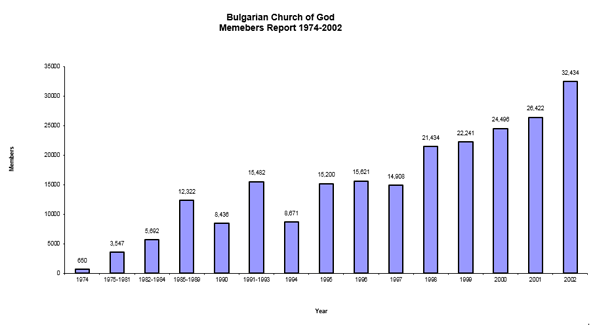
CIA Report: STATUS OF THE PROTESTANTS IN BULGARIA
https://www.cia.gov/readingroom/document/cia-rdp82-00457r006100810004-5
STATUS OF THE PROTESTANTS IN BULGARIA
| Attachment | Size |
|---|---|
| 134.43 KB |
3 Decades Later: Evangelical Education in Bulgaria at Halt
With the new Bill on Religion in Bulgaria, the Muslim community has been given amnesty on some $4,500,000 of public debt, while granted another $3 million in annual government subsidies. As a result, the monthly salary of Muslim clergy (imams) has already increased with 20% and a new Islamic school is being opened in one of the historically oldest Christian places in Bulgaria, the city of Sliven. All while, the evangelical protestant communities are not receiving financial support under the new law and their schools remain without proper government legalization via the Bulgarian Ministry of Education.
Though this legal precedent follows the Russian Law on Religion that has already effectively closed the evangelical seminaries in Moscow, it is manifesting a political agenda undergoing in Bulgaria for over a decade. What remains unsaid with the recent changes in the Law of Religion in Bulgaria is the ultimate halt of evangelical education in the country. The Bulgarian Evangelical Theological Institute has been functioning at its operational minimum for years now. Students are trained mainly online or via small local groups spread in various cities. They are called to the school departments only for graduation or occasionally lectures by visiting scholars. Even after years of waiting, the Institute was never granted official accreditation through Bulgaria’s Ministry of Education and most of the students preferred getting their degrees from other accredited and licensed institutions. Less than 1% of the students who were not in ministry at the time of their enrollment entered the ministry post graduation. And even fewer of them remain in ministry today; which ultimately ensures the lack of adequately trained ministers for placement in the evangelical churches of Bulgaria.
The last Bulgarian to graduate from the Church of God Theological Seminary did so over a decade ago, and 2009 was the last class of the Bulgarian Theological College (seminary). One of the greatest mistakes made was closing the college in 2009, thus leaving the movement with virtually no higher ministry training for the last decade.
We were present at the national meeting of elders on September 10, 2009 in Sofia when the final decision to close the Church of God Theological College was voted. Only a few others along with us disagreed with the vote and pleaded with the assembly to make everything possible and keep the school open. At the final vote, it came down to a few thousand dollars due in annual membership fees and the school was closed.
Five years prior to these events in 2004, we published an article on evangelical education in Bulgaria with some warnings. The article proposed a change of the evangelical educational paradigm in anticipation of new legal changes and the prolonged waiting for a governmental accreditation. In fact, the same issues addressed in our proposal repeated themselves in 2016 upon Russia changing its own legislation on religion and religious education thus effectively illegalizing evangelical seminaries and overall missionary work. Today, similar legal measures are put in place by the Bulgarian government as well.
The final of our 10-point proposed plan in 2004 included the following observation:
- Naturally, the well-educated graduates have chosen not to occupy themselves with denominational politics both to avoid confrontation and to express their disagreement. This dynamic has been partially ignored by leadership remaining from the period of the underground church when religious education was virtually nonexistent and lacking a complete realization of the power of education. This unnoticed trend, however, endangers Bulgarian Evangelism creating a lack of continuity within the leadership and preparing the context for the emerging leadership crises.
With the new Bill on Religion in Bulgaria closely following the effective closure of evangelical seminaries in Moscow, the opportunity for a government recognized ministerial training in Bulgaria may be legally impossible to regain. In the light of those resent changes, our 2004 proposal for a legal ministry training alternative was successfully implemented and used for our Master of Chaplaincy Ministry graduates since 2009 providing a single valid alternative for evangelical education in Bulgaria.
First Day of School in Bulgaria
A Call to Righteousness over Bulgaria
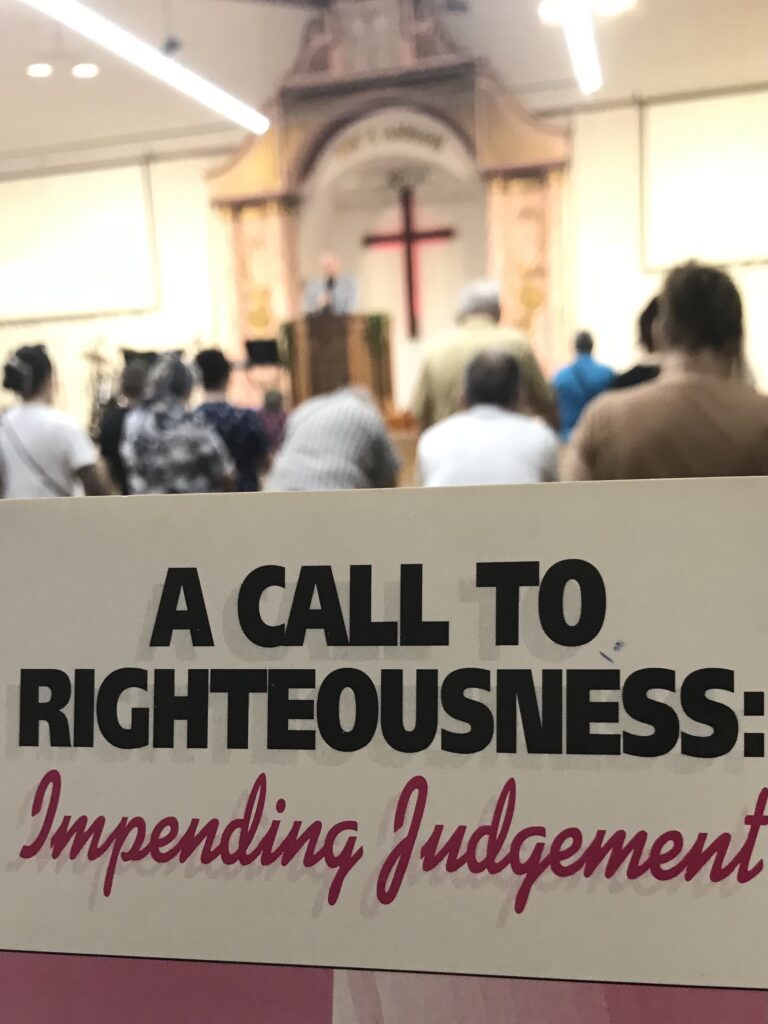
Wild Fire Inferno over Bulgaria
Bulgaria Sets October 20th for 7th Early Parliamentarian Elections in 3 Years
August 15, 2024 by Cup&Cross
Filed under Featured, News, Publication
President Rumen Radev has appointed Goritsa Grancharova-Kozhareva as the new acting Prime Minister and expects her to propose a caretaker government by August 19. During a meeting at the presidential residence on Dondukov 2, Radev outlined the timeline and expectations for the formation of the new government.
Radev indicated that while the Constitution does not specify a strict deadline, October 20 is considered the most suitable date for the upcoming early parliamentary elections. He instructed Grancharova-Kozhareva to present a proposed government structure and composition by August 19 to ensure compliance with legal requirements.
Government Elections in Bulgaria (2005-2024):
2005 Parliamentary Elections
2006 Presidential Elections
2007 Municipal Elections
2009 Parliamentary Elections
2009 European Parliament elections
2011 Presidential Elections
2011 Local Elections
2013 Early parliamentary elections
2014 Early Parliamentary Elections
2015 Municipal Elections
2016 Presidential election
2017 Parliamentary elections
2019 European Parliament election (23-26 May)
2019 Bulgarian local elections
2019 Municipal Elections
2021 April National Parliament election
2021 Second National Parliament election
2021 Third National Parliament and Presidential elections
2022 October elections for 48th National Assembly after the fall of a four-party coalition in June 2022.
2023 Bulgarian parliamentary election
2023 Second Bulgarian parliamentary election for the year
2024 Bulgarian parliamentary election
2024 Second Bulgarian parliamentary election for the year
Bulgaria prohibits propaganda for non-traditional sexual orientation in schools
After more than 4 hours of debate and violent scandals, Bulgaria’s Parliament on August 7 voted to adopt law changes which prohibit propaganda for non-traditional sexual orientation in schools. The proposal for changes to the Law for Pre-School and School Education was tabled by “Vazrazhdane” party. The changes prohibit “propaganda, promotion and encouragement, directly or indirectly, of ideas and views connected to non-traditional sexual orientation or to definition of gender identity different from the biological”. The changes to the law were supported at first and second reading by GERB-UDF, Vazrazhdane, Movement for Rights and Freedoms (MRF), There is Such a People, BSP for Bulgaria. Some 20 MPs from “We Continue the Change-Democratic Bulgaria” and 2 MPs from GERB-UDF voted against. Ten MPs from WCC-DB and three from GERB-UDF abstained. Here is part of the debate in the chamber: Kostadin Kostadinov – “Vazrazhdane”. We have a problem and it is a big problem. Now we are going to nip it in the bud so that no one, no way, can ever try to do what they do to children in other countries because it is not humane and it is anti-human to promote non-traditional sex education in schools. It is an anti-human ideology. And with this little text in the law we will bury and nip this ideology in the bud.
Yavor Bozhankov, WE Continue the Change – Democratic Bulgaria: “This bill you are proposing is nothing but pre-electoral populism, ugly homophobia and ugly division in society. Our Parliamentary Group will remain a defender of the parliamentary practice that bills should not be passed in this way. Do not fall victim to the pro-Russian “Vazrazhdane”.
Yordan Tsonev, MRF: “The MRF parliamentary group will support the proposed bill. This is an important part of children’s education and we cannot remain indifferent on this topic. The biggest reason to support it is that a large part of the Bulgarian people share this opinion about the education of our children. We share the motives of those who tabled the proposed change, which is also based on a text from the Constitution, which says that marriage is a voluntary union between a man and a woman. I want to address something else.
Traditional religions are conservative on this topic, because the foundations of the human species are based on the family, marriage between a man and a woman and the continuation of the human species are based on that. And to be clear, there is no place for this type of education in our schools and it has nothing to do with tolerance of the different. Children are something else. They should be left to develop according to God’s laws.”




